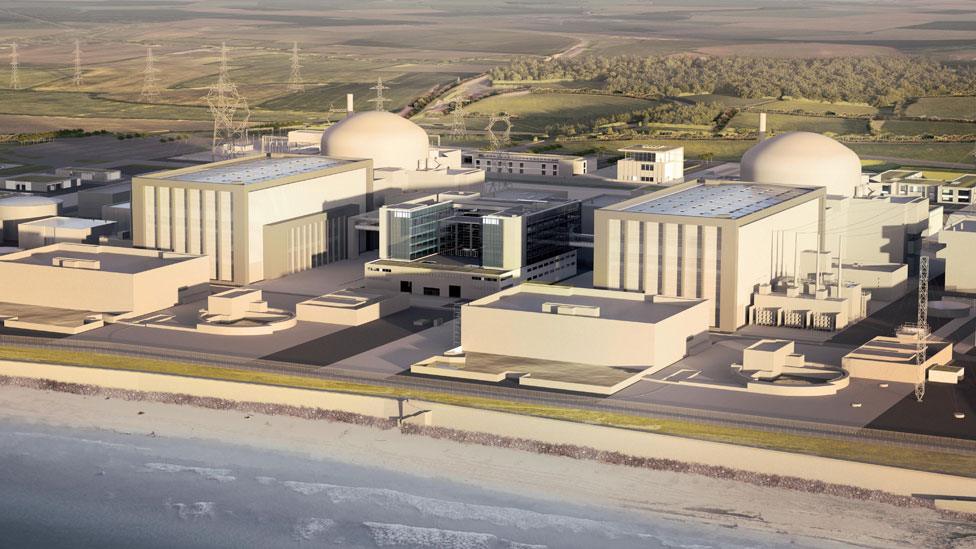Plans to dump Hinkley Point mud off south Wales criticised
- Published
- comments
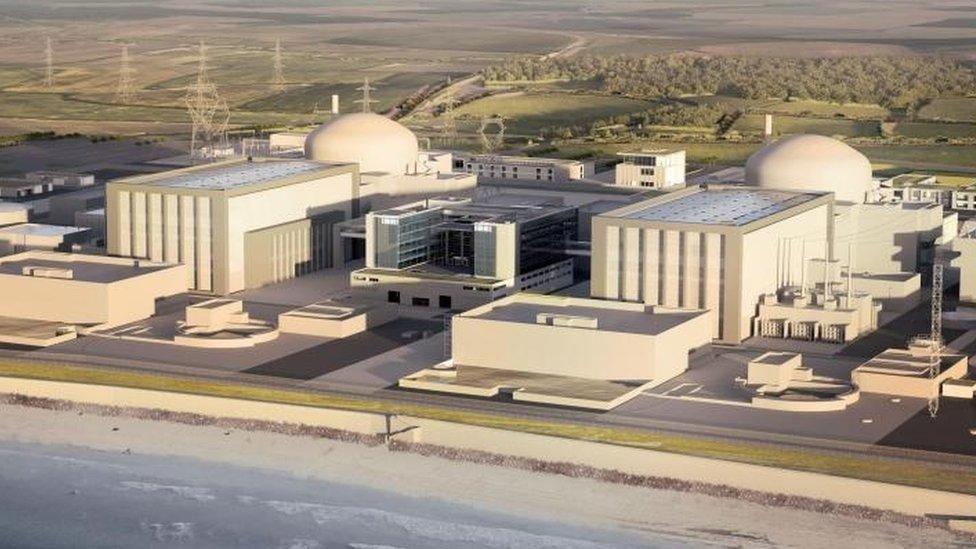
Hinkley Point C is expected to create more than 25,000 jobs
Plans to dredge 300,000 tonnes of mud from near a disused nuclear plant and dump it off Cardiff Bay have been criticised.
A marine pollution expert claims the mud from near Hinkley Point in Somerset could expose people to radioactivity.
EDF Energy, the company behind the plans, said the work was not harmful to humans or the environment.
The Welsh Government said all applications were considered in line with legal requirements.
Dredging is proposed in Bridgwater Bay near the decommissioned Hinkley Point A and B as part of construction work for the new £19.6bn Hinkley Point C nuclear power station.
Welsh ministers granted permission in 2013 for developers to dispose of the sediment at a site know as Cardiff Grounds, previously used to deposit waste from Cardiff and Newport docks.
But independent marine pollution consultant Tim Deere-Jones, who specialises in marine radioactivity, claimed sampling of the mud to check for potentially harmful contaminants had been "inadequate".
He told BBC Wales low level waste from the nuclear plant had entered the site for more than 50 years and there was a lack of knowledge about the potential harm of moving the mud.
"Rather than being relatively stable at the Hinkley site it is being churned up and brought over here to be dumped," he said.
"Radioactive and non-radioactive pollutants will inevitably enter inshore waters and coastal environments.
"Several studies have shown that wastes dumped into the sea transfer to the land in sea spray and episodes of coastal flooding.
"As a result Welsh coastal populations could be exposed to doses of marine radioactivity."
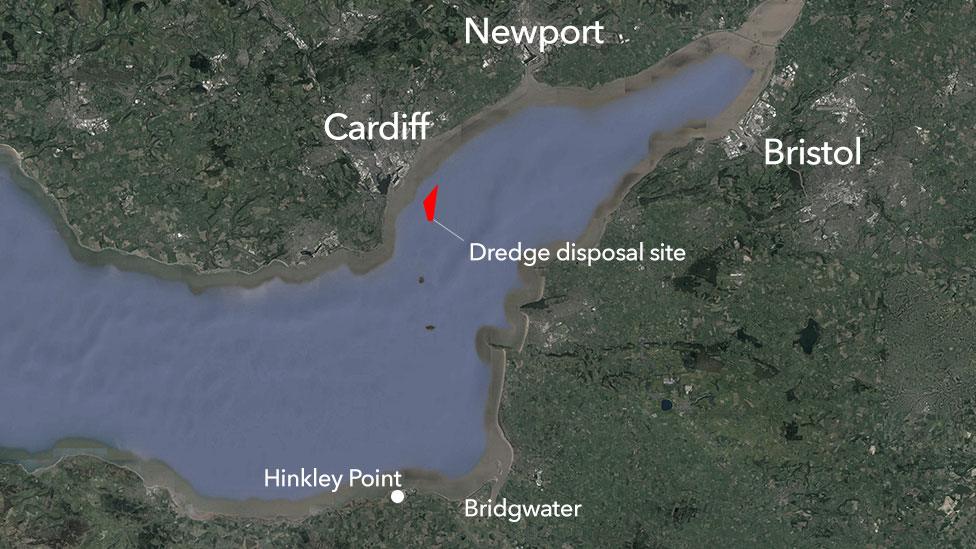
South Wales Central AM Neil McEvoy said the licence should be revoked until a full environmental impact assessment had been carried out.
"No dose of radiation is acceptable for human health so it beggars belief that the Welsh Government would allow material from a nuclear site to be dumped in Welsh waters," he said.
The UK government approved the new nuclear power station in September 2016.
The dredging is part of the work to construct waste discharge pipes and cooling water intakes for the new power station.
A marine licence allowing the company to dispose of the dredged mud in Welsh waters was granted during a period when responsibility for environmental regulation was being transferred from the former Environment Agency Wales to its successor body, Natural Resources Wales (NRW).
It means the application was handled by Welsh Government officials and BBC Wales understands they retain control over enforcing the terms of the licence.
'No threat'
NRW said protecting people and the environment was a "fundamental concern" and further sampling would be required before any sediment was disposed off the south Wales coast.
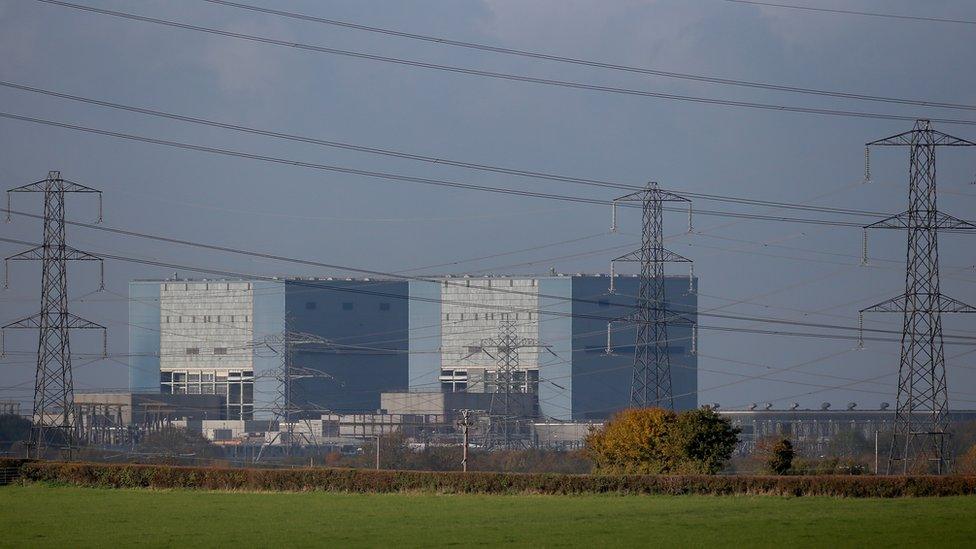
Hinkley Point C will be built next to the two existing facilities, Hinkley Point A and B
An EDF spokesman said: "We consulted a number of stakeholders for more than 12 months before making an application to the Welsh Government Marine Consents Unit for a marine licence to deposit this material at the Cardiff Grounds licensed disposal site."
"We have undertaken a number of assessments as part of this application which concluded the activities pose no threat to human health or the environment."
Environment Secretary Lesley Griffiths said she was unable to comment on a process that had been carried out "some time ago", but added: "All marine applications are considered in line with legal requirements.
"I understand a valid marine licence is in place and there are conditions that need to be complied with by the licence holder before any disposal can take place."
- Published15 September 2016
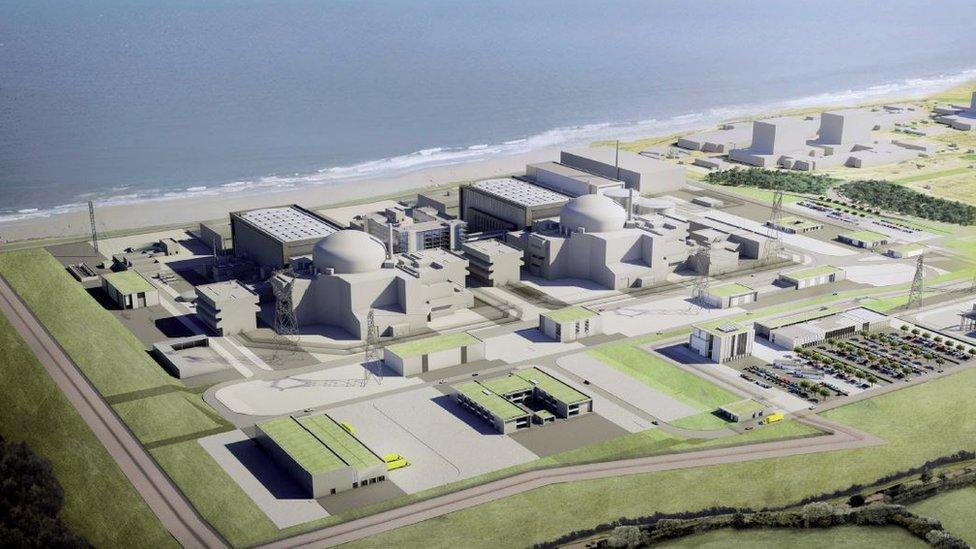
- Published15 September 2016

- Published13 November 2015
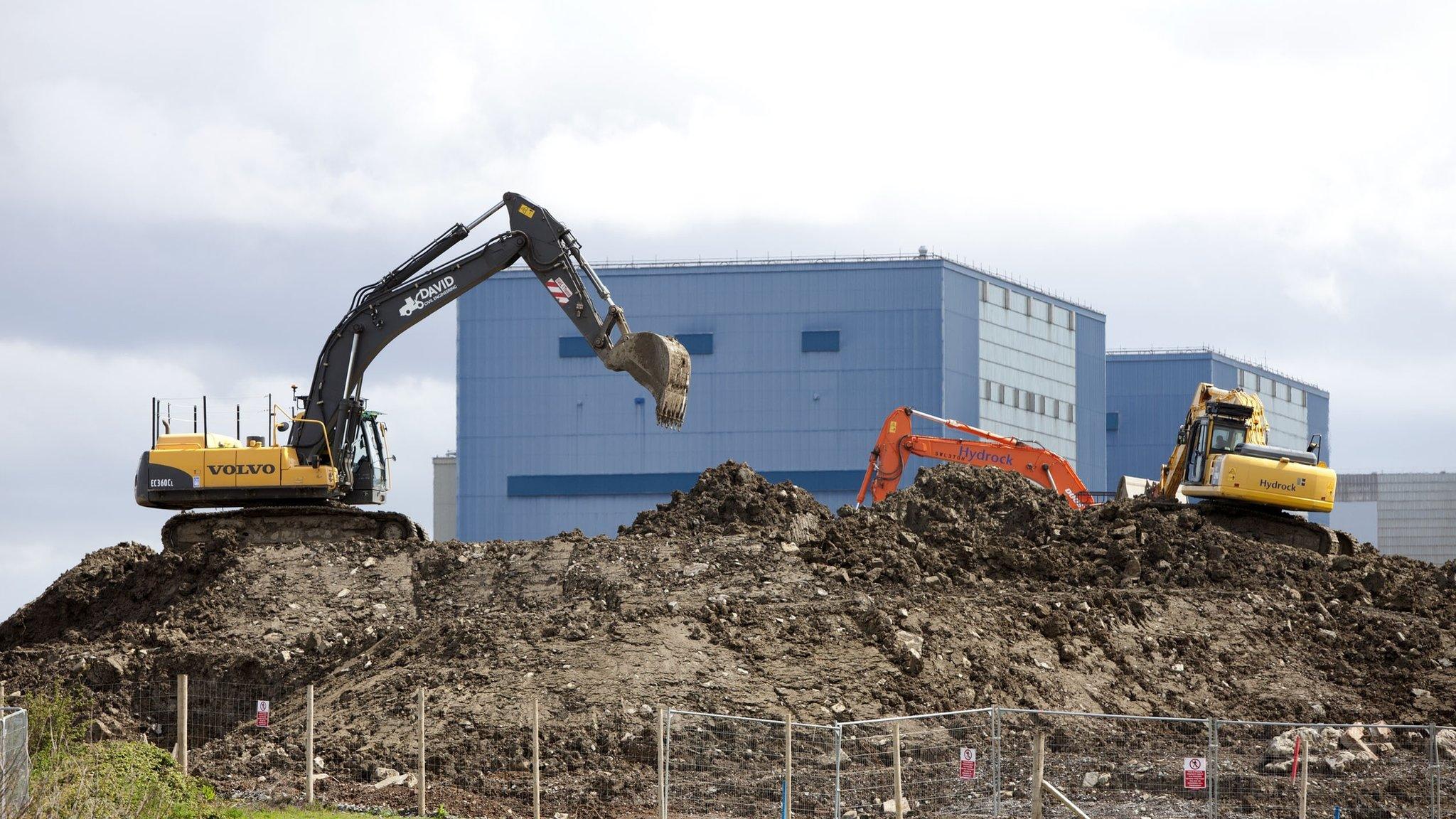
- Published21 October 2015
